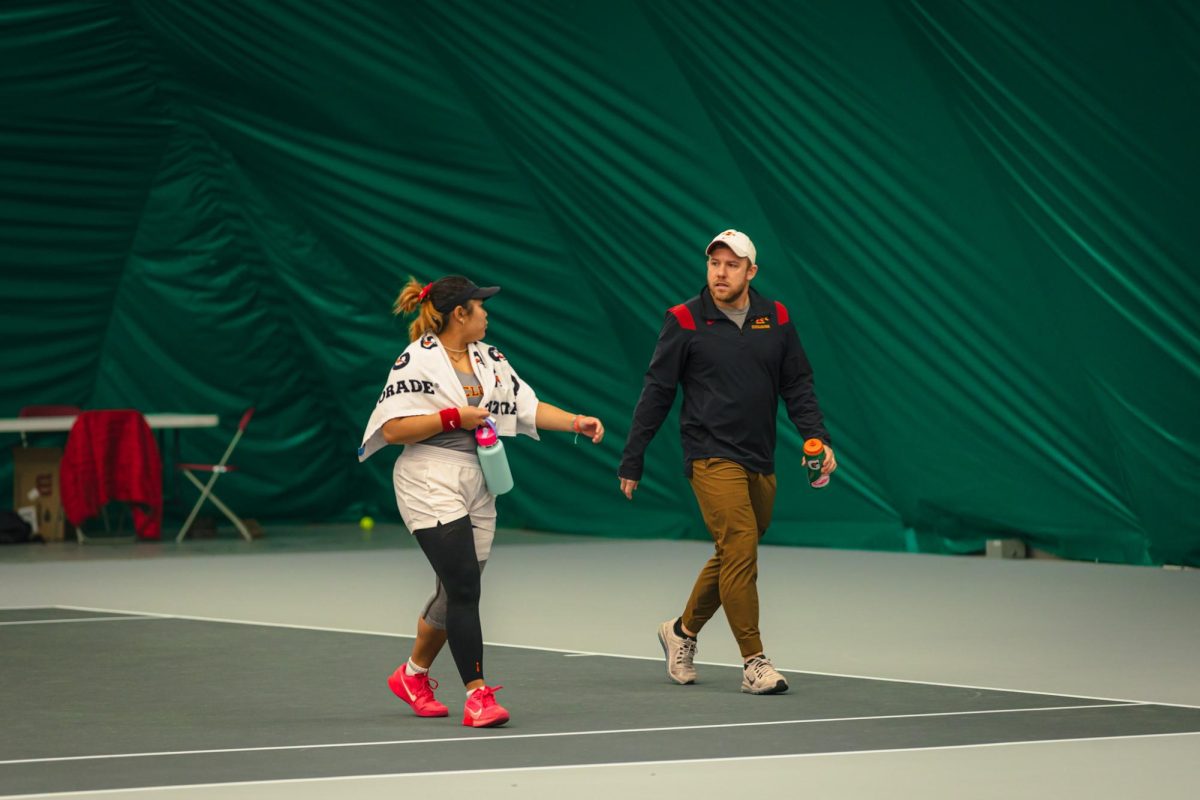The Movement isn’t over
January 31, 1997
The Civil Rights Movement isn’t over, said a civil rights activist Thursday evening.
C.T. Vivian’s presentation to more than 200 people in the Memorial Union was one of energy and enthusiasm that had audience members shouting in pride. His speech, “Creating a Civil Rights Movement For a New Century” was the closing campus event in honor of Martin Luther King, Jr.
Vivian is an activist and a Baptist minister who organized the first sit-ins in 1960 and the first civil rights march in 1961. He also rode the first freedom bus to Jackson, Miss.
“We must look behind in order to look forward,” Vivian said. “Civil rights did not start in 1959 in Montgomery, Alabama.”
He said the first civil rights action was the signing of the Emancipation Proclamation in 1864, which gave blacks the legal right to fight oppression. The Emancipation, Vivian said, caused blacks and whites to work together.
However, it was only a strategy to complete equal rights. Abolitionist Frederick Douglass pushed Lincoln to sign the Emancipation, Vivian said.
“America never really gave us anything,” he said. “African Americans wanted one civil right, and that was the one to be free.”
Vivian said states couldn’t accept blacks so they passed laws limiting what blacks could do in their lives.
When the 1960s Civil Rights Movement came around, three things happened, Vivian said.
First, he said, King gave blacks a method to deal with oppression. Secondly, it created a great coalition of people regardless of color. Third, it destroyed the concept of states’ rights. As a result, it took away the legal instrument of the Constitution for states to limit blacks’ rights. Lastly, black Americans could be seen as human beings.
However, Vivian said, time doesn’t change society’s problems because we still live in a culture where racism exists.
“Even if the century were not changing, the problems are still the same,” he said. “There’s not a problem that can’t be solved in America unless the problem of racism is solved. There’s no reason to believe if you’re black you’re going to rid of racism in the next 200 years.”
“We must continually be active,” Vivian said. “There are struggles that must move forward. Civil rights must become our left-hand action, not a right-hand action.”
Vivian said laws today support change, but don’t solve problems of racism and sexism. What is needed, he said, is a human rights movement for the coming century.
“The key to new discovery is … looking at an old landscape with new eyes,” he said.






